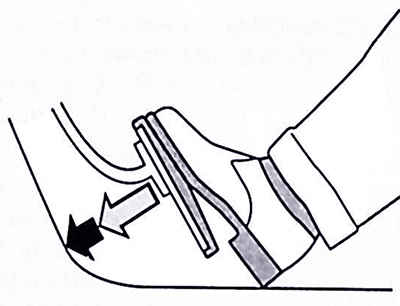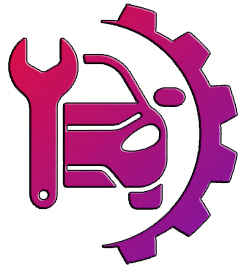Why is my brake pedal hard when i start my car?

Understanding the Dilemma of a Firm Brake Pedal: Potential Causes and Solutions
Encountering a firm brake pedal upon starting your vehicle can be perplexing and concerning, potentially indicating underlying issues within the braking system
This guide delves into the various culprits behind this phenomenon and offers comprehensive solutions to rectify the problem, ensuring optimal safety and performance while driving.
Identifying Potential Causes:
Insufficient Brake Fluid Levels
One of the primary culprits behind a firm brake pedal is low brake fluid levels. This deficiency allows air to infiltrate the brake lines, resulting in a sensation of hardness or sponginess in the pedal.
Compromised Brake Booster
The brake booster plays a pivotal role in amplifying the force exerted on the brake pedal. Any leakage or malfunction in this component can lead to a stiff pedal feel, impeding effective braking.
Vacuum Leakage
Many modern vehicles rely on vacuum pressure from the engine to facilitate brake application. A leakage in this vacuum system can diminish pressure levels, consequently manifesting as a firm brake pedal.
Malfunctioning Brake Master Cylinder
Responsible for pressurizing brake fluid, a faulty master cylinder can disrupt the hydraulic force transmission, causing the pedal to feel unresponsive or rigid.
Issues with Brake Calipers
Dysfunction or adherence of brake calipers can hinder the proper engagement of brakes, resulting in an unyielding pedal sensation.
Obstructed Brake Lines
The presence of debris or corrosion within brake lines can obstruct the smooth flow of brake fluid, leading to a hardened pedal response.
Brake Pad Complications
Worn-out brake pads or incorrect installation can compromise braking efficiency, contributing to a stiff pedal sensation.
Effective Solutions

Thoroughly Inspect Brake Fluid Levels:
Regularly monitor the brake fluid reservoir and replenish it as necessary. Consistent low levels may indicate an underlying leak that requires prompt attention.
Examine Brake Booster and Vacuum Lines:
Conduct a visual inspection of the brake booster and vacuum lines for any signs of damage or leakage. Address any identified issues through repair or replacement.
Evaluate Brake Master Cylinder:
Scrutinize the master cylinder for leaks or damage, and if detected, promptly replace it followed by a thorough brake bleeding procedure.
Inspect Brake Calipers and Lines:
Ensure proper functioning of brake calipers and verify the integrity of brake lines to mitigate blockages or damage.
Check Brake Pads:
Assess the condition of brake pads, replacing them if worn or damaged to restore optimal braking performance.
Perform Brake System Bleeding:
Eliminate air bubbles from the brake system through a bleeding process, thereby restoring proper brake functionality and alleviating a firm pedal feel.
Additional Insights

- Prioritize Regular Maintenance
Adhering to the manufacturer’s recommended maintenance schedule for brake system inspection and upkeep can preemptively address issues – example: firm brake pedals.
- Prevent Brake Overheating
Minimize instances of excessive braking, particularly during downhill descents, to mitigate brake overheating and subsequent pedal firmness. Utilize engine braking techniques or downshifting to alleviate reliance on brakes.
- Opt for High-Quality Brake Fluid
Employing a premium-grade brake fluid endorsed by the manufacturer can optimize brake system performance and mitigate the likelihood of firm pedal occurrences.
- Adopt Prudent Driving Practices
Avoid habits – example: prolonged brake usage or abrupt, forceful braking maneuvers, as these behaviors can strain the brake system over time, leading to potential complications.
By adhering to these comprehensive guidelines, motorists can effectively diagnose and address the issue of a firm brake pedal, safeguarding the reliability and safety of their vehicle’s braking mechanism.
Should the problem persist despite troubleshooting efforts, seeking professional assistance from a certified mechanic is advisable to ensure thorough resolution.












